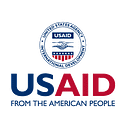Creating a Sustainable Way to Respond to Health Emergencies in Colombia
When the next emergency hits, health authorities will have a plan ready to activate
By Sarah Gonzalez
Beginning in March 2020, COVID-19 forced health systems globally to quickly shift their priorities to respond to the virus. As the pandemic reaches more manageable levels in many parts of the world, it is now important to integrate the emergency strategies developed for the pandemic response into permanent structures and processes that countries can activate in future health emergencies.
Since June 2020, the USAID Local Health System Sustainability Project (LHSS) has assisted with Colombia’s COVID-19 response by collaborating with the government to develop the Rapid Response Team strategy. This innovative emergency response strategy integrated surge personnel such as epidemiologists, nurses, and doctors into existing structures at the Ministry of Health (MOH) and departmental and municipal health secretariats.
The rapid response teams were first deployed to help communities implement testing, contact tracing, and isolation protocols. Later, their scope was expanded to support community public health surveillance and COVID-19 vaccination.
“We must systematize this experience of preparation for future pandemics, and these rapid response teams were like a base.” — Colombia Ministry of Health official
While the Rapid Response Team effort was originally intended as an emergency solution to human resources shortages, USAID also asked LHSS to work with the MOH and health secretariats to build sustained capacity to respond to future public health emergencies quickly and effectively. We’re doing so through two paths: by supporting local health secretariats’ efforts to hire rapid response team members full-time, and by encouraging the adoption of the Roadmap for Deploying Rapid Response Teams in the Territories during Future Health Emergencies in Colombia, described below.
Permanently integrating the work done by rapid response teams into health systems means that for each future health emergency, local health secretariats will not have to design their response from scratch. As an MOH Office of International Cooperation official put it, “We must systematize this experience of preparation for future pandemics, and these rapid response teams were like a base — one of the key elements at the base of the pyramid of emergency response.”
Roadmap for future health emergencies
One key consideration for sustainability was developing an efficient process for creating rapid response teams and getting them to where they are needed in a health emergency. This process was documented by LHSS and the departmental and municipal health secretariats in a surge mobilization roadmap. The roadmap has already been used in subsequent phases of the pandemic, allowing teams to be deployed more and more quickly, even in health secretariats with no prior experience. Supplementing the roadmap is a database of qualified health professionals to help health secretariats quickly build teams.
LHSS also worked with the MOH on a manual to help the health secretariats evaluate the performance of rapid response teams. The manual incorporated local officials’ knowledge of needs and human resource availability and increased their sense of ownership of the teams and processes.
Permanent placements for rapid responders
Several rapid response team members now have permanent positions on departmental and municipal health teams. For example, one member was hired onto the staff of the Bucaramanga Health Secretariat and continues to build emergency response capacity in the municipality.
Other rapid response team members who remained on staff at the health secretariats have aided in the development of methodologies, guides, and tools that health professionals can use moving forward, including bulletins on COVID-19 tracking in the migrant population, checklists to validate the quality of health care provision for people with acute respiratory distress, and clinical practice guides.
Overall, about 15 percent of the professionals who served on rapid response teams have been incorporated into the departmental or municipal health secretariats, aided by the fact that the teams consisted of local professionals.
“I thought it was good that you summoned people from the territory, so that they would stay working here [after the pandemic],” said an official of the Health Secretariat of Boyacá.
As the need for active rapid response teams wanes, LHSS is implementing a transition plan to strengthen the capacity of frontline health workers in the health secretariats to respond to future emergencies using public health surveillance with a community approach. The goal is that more personnel will be trained to do work previously delegated to rapid response teams. This, along with LHSS’s continued support to the MOH in preparing a formal response plan for future epidemics, will allow for an efficient and effective response to future health emergencies.
About the author:
Sarah Gonzalez previously worked at Abt Associates as a program management analyst supporting the LHSS Colombia Activity. She is currently pursuing a medical degree at Duke University.
